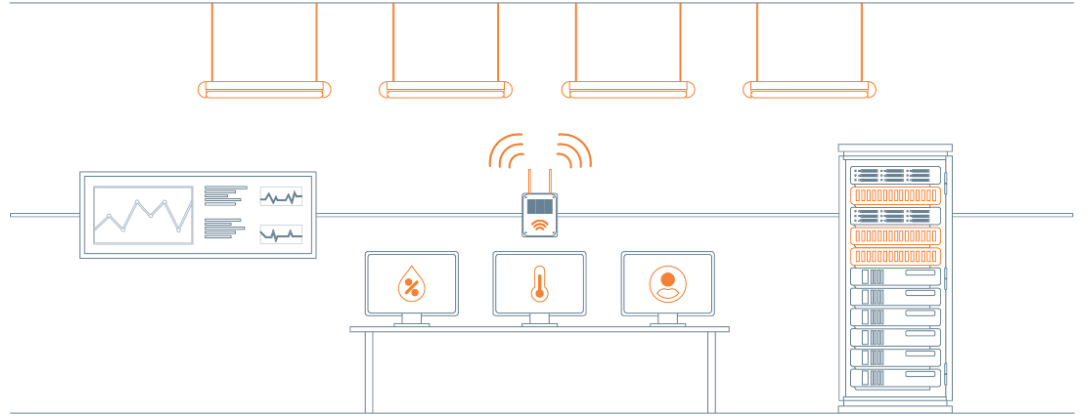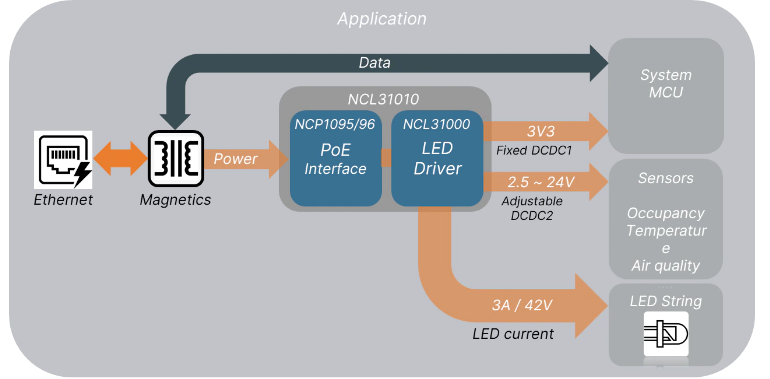
All buildings - whether domestic, commercial or industrial - require interior lighting. LED lighting has largely replaced incandescent and halogen bulbs, but the way lighting is powered and used hasn't changed much. Let's quickly review current developments in lighting, then consider new and smarter ways to use lighting to realize the full potential of smart and automated buildings.

The traditional method of installing lighting is to route the power cable to the planned location of the light fixture (also known as the luminaire). However, mains is AC power, but LEDs require DC power, which means a transformer (to rectify the AC power), and usually an additional DC-DC converter to downconvert the transformer's DC output. Wouldn't it make more sense to route the DC power to the light fixtures and think about other things they could do instead of just lighting a single room? In fact, lamps offer a range of different functions. For example, they can install sensors to monitor temperature, humidity, air quality and occupancy. All of these are interconnected and can be managed so that smart buildings operate at peak efficiency. PoE also for power and data
This raises the question of how to provide the luminaire with the DC power and reliable digital connections required for the sensor? Since energy efficient buildings use a lot of insulation and have thick walls, wireless technology can be effectively ruled out. Power over Ethernet (PoE) is a great option, as smart buildings now typically come with Cat5 or Cat6 Ethernet cables as standard. Route the ethernet cable to the fixture instead of the power cable to provide the connection (at the selected speed). It can also transmit DC voltage to sensors and lamps via Power over Ethernet (PoE).
2-in-1 lighting and connectivity solution
Connected luminaires already exist, but solutions on the market today typically use a separate driver IC for the LED light source and a PoE controller for the data connection. Onsemi's NCL31010 now integrates two components into a single package, making a single luminaire part of a fully connected and managed lighting system and enabling many other functions.

The device can deliver over 90 W via PoE and has two auxiliary DC-DC converters to power microcontrollers and sensors. An innovative application of the device, called Visual Light Communication (VLC), makes it impossible to use lighting systems with separate LED drivers and PoE controllers. This involves modulating (invisible) data directly onto the LED light, allowing it to act as a locator beacon in indoor positioning systems (e.g. Yellow Dot™), overcoming other wireless systems currently used for this purpose (GPS, Wi-Fi ™ etc.).
LED luminaires offer more than simply illuminating the interior of a building. PoE is a power and connectivity solution that allows luminaires to provide a range of other smart features to support building automation. The NCL31010 provides a one-stop shop for luminaire designers to manage their power and connection requirements.